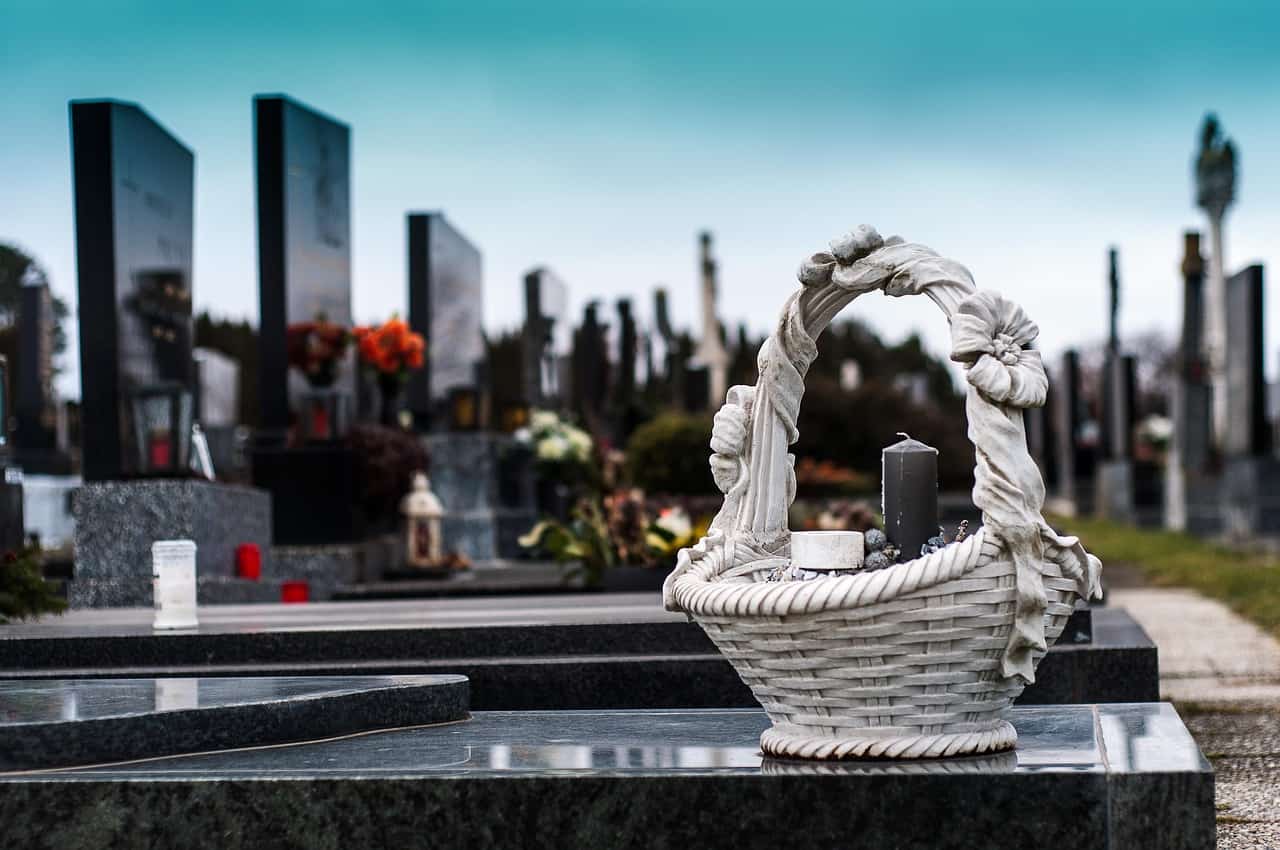Arranging a cremation without the help of a funeral director may seem daunting, but it is entirely possible. For those who wish to take control of the process and save on costs, there are several steps that can be taken to ensure a smooth and respectful cremation.
In the United Kingdom, arranging a cremation without a funeral director involves navigating various legal requirements and coordinating with multiple parties. However, with some research and preparation, it is possible to arrange a dignified farewell for your loved one without the assistance of a funeral director.
In this article, we will provide guidance on how to successfully arrange a direct cremation on your own.
Understanding The Legal Requirements
The first step in arranging a cremation without a funeral director is to understand the legal requirements. This process can seem daunting, but with some research and patience, it can be done successfully.
One of the most important things to consider when arranging a cremation is obtaining permits. In order to proceed with the cremation, you will need to obtain several permits including the Medical Certificate of Cause of Death and the Cremation Application Form.
Finding resources for obtaining these permits can be challenging, but there are many online guides and forums that can help you navigate this process. Once you have obtained all necessary permits, you will be able to move on to coordinating with the crematorium.

Coordinating With The Crematorium
Once you have decided on a cremation, the next step is to coordinate logistics with the crematorium. This includes choosing a cremation package and scheduling a time for the service. While funeral directors often handle these arrangements, you can work directly with the crematorium to ensure everything runs smoothly.
When coordinating with the crematorium, consider these four factors:
- Location: Choose a crematorium that is conveniently located for family and friends who will be attending the service.
- Cremation package: There are different packages available, so choose one that fits your budget and preferences.
- Service options: Decide what type of service you want – whether it’s a simple ceremony or a more elaborate gathering.
- Scheduling: Work with the crematorium to schedule a time for the service that works best for everyone involved.
By working directly with the crematorium, you can save money and have greater control over the arrangements. Once everything is in place, it’s time to move on to preparing the deceased for cremation.
Preparing The Deceased For Cremation
As we discussed earlier, arranging a cremation without a funeral director may seem daunting at first, but it is certainly possible.
Once you have made the necessary arrangements and obtained the appropriate paperwork, the next step is to prepare your loved one for cremation.
While traditional funeral directors often embalm the deceased before cremation, there are alternative methods available that do not involve harsh chemicals or invasive procedures.
One such method is refrigeration. By keeping the body in a cool environment, it slows down the natural decomposition process and preserves the body until it’s ready for cremation.
This option is not only more eco-friendly than traditional embalming methods but also costs significantly less.
Additionally, some funeral homes offer eco-friendly options like shrouds or biodegradable caskets that can be used during cremation.
Planning The Ceremony
Now that your loved one has been prepared for cremation, it’s time to start thinking about how you want to honour their life. If you have decided to arrange the cremation yourself, without a funeral director, then you may also want to consider planning the ceremony too. This can be a daunting task, but it can also be an opportunity for you to personalise the service and make it truly special.
To help guide you through this process, we have put together a list of things to consider when planning the ceremony:
- Decorate the venue – Whether you choose to hold the ceremony at home or in a hired space, decorating the venue can help create a warm and welcoming atmosphere. Consider using flowers, candles or other decorative items that were meaningful to your loved one.
- Choose the music – Music can be a powerful way of expressing emotions and memories. Think about songs that your loved one enjoyed or ones that remind you of them. You could even create a playlist featuring all their favourite tracks.
- Decide who will speak – It’s common for family members and close friends to give eulogies or readings during a funeral service. Think about who would like to speak and what they might like to say.
- Honour any cultural or religious traditions – If there are any specific cultural or religious customs that need to be observed, make sure these are incorporated into the ceremony.
Navigating the emotional process of planning a funeral ceremony can be challenging, but remember that it’s okay to ask for support from family and friends during this time.
In the next section, we’ll explore some ways you can take care of yourself while making these important arrangements.
Navigating The Emotional Process
Arranging a cremation without a funeral director can be an emotionally challenging experience. You may feel overwhelmed and unsure of how to proceed, but there are coping strategies that can help you through this difficult time. One important strategy is to take things one step at a time. Don’t try to do everything at once – instead, focus on each task as it comes up and tackle it in a calm and methodical way. This can help you avoid feeling overwhelmed and ensure that you’re making progress towards your goal.
Another helpful strategy is to seek out support resources. There are many organizations and individuals who can provide guidance and assistance throughout the process of arranging a cremation. For example, you may want to reach out to local hospices or bereavement support groups for advice on how to cope with your emotions during this time. Additionally, there are online forums where people who have gone through similar experiences can share their stories and offer support and encouragement.
To help simplify the process of arranging a cremation without a funeral director, we’ve put together the following table outlining some key tasks that need to be completed:
| Task | Description |
|---|---|
| Obtain death certificate | You will need to obtain a copy of the death certificate before you can proceed with arranging the cremation. |
| Choose a crematorium | Research local crematoria to find one that meets your needs and budget. |
| Arrange transportation | Coordinate transportation of the deceased from the place of death to the crematorium. |
| Complete necessary paperwork | Fill out any necessary forms or paperwork required by the crematorium or other agencies involved in the process. |
Remember, while arranging a cremation without a funeral director can be challenging, there are resources available to help you through this difficult time. Take advantage of these resources and don’t hesitate to reach out for support when you need it most.
Frequently Asked Questions
What Equipment And Supplies Do I Need To Perform A Cremation At Home?
You may be wondering if it’s even possible to perform a cremation at home without the help of a funeral director. While this may seem like an unusual idea, it is legal in the United Kingdom as long as certain guidelines are followed.
First and foremost, safety precautions must be taken to ensure that the process is carried out responsibly. It’s important to research and invest in appropriate equipment such as a cremation container or furnace, which can be purchased from reputable suppliers. Cremation container options range from cardboard boxes to more durable materials such as bamboo or cloth.
Additionally, protective gear should be worn to prevent any harm during the procedure. With careful planning and attention to detail, performing a home cremation can provide a meaningful farewell for your loved one.
Can I Transport The Deceased To The Crematorium Myself Or Do I Need To Hire A Professional Service?
Can you transport the deceased to the crematorium yourself for a DIY cremation, or do you need to hire a professional service?
It’s important to understand the legal requirements before making any arrangements. In the United Kingdom, it is legal for a family member or friend to transport the body of their loved one to the crematorium as long as certain criteria are met. The vehicle used must be appropriate for carrying a coffin, and all necessary paperwork must be completed beforehand.
However, it’s important to note that some crematoriums may have their own policies regarding transportation of the deceased. It’s always best to check with your chosen facility beforehand or consider hiring a professional service if you’re unsure about any aspect of arranging a DIY cremation.
How Do I Obtain A Death Certificate And Other Necessary Legal Documents Without A Funeral Director?
To begin the DIY cremation process, it’s important to obtain a death certificate and other necessary legal documents. But how do you go about doing that without a funeral director?
Don’t worry, it’s not as complicated as it may seem. First, contact the Register Office in the district where the person passed away to obtain a death certificate.
You’ll also need to fill out a Cremation Application Form and submit it to the Crematorium. Additionally, you may need to complete an HM Coroner’s Certificate for Cremation if the cause of death was unclear or unexpected.
With these steps completed, you’re ready to move forward with arranging a cremation without the help of a funeral director.
What Are The Guidelines For Scattering Ashes In A Public Or Private Location?
If you’re planning on scattering the ashes of a loved one, it’s important to know the guidelines for doing so in a public or private location.
When scattering ashes on private property, it’s important to obtain permission from the landowner or follow any specific rules they may have in place.
Additionally, if you’re planning a scattering ceremony in a public park, there may be legal requirements you need to adhere to, such as obtaining a permit from local authorities.
It’s important to research these regulations beforehand to ensure that your scattering ceremony is both respectful and legal.
Are There Any Specific Regulations Or Laws Regarding Keeping The Ashes Of A Loved One At Home?
Wondering if there are specific regulations or laws regarding keeping your loved one’s ashes at home?
Yes, there are cremation regulations and ashes storage laws that you need to know.
In the United Kingdom, you can keep the ashes of a loved one at home without needing any permission, but it is essential to ensure that the urn or container is kept in a safe place.
It is also important to note that scattering ashes in public places like parks or beaches may require permission from local authorities.
If you plan on burying the ashes or scattering them in private land, make sure you have obtained the necessary permissions and follow all guidelines set by local authorities.
Conclusion
In conclusion, arranging a cremation without a funeral director may seem daunting at first, but with the right information and resources, it can be done. Remember to obtain all necessary legal documents and equipment before proceeding with the cremation process. If you are unsure about certain aspects, do not hesitate to seek advice from professionals or relevant authorities.
One potential objection to performing a cremation without a funeral director is that it may be seen as disrespectful or inappropriate. However, it is important to remember that everyone has different beliefs and preferences when it comes to end-of-life arrangements. As long as the process is carried out safely and legally, there should not be any issues.
At Funeral Service UK, we understand that navigating end-of-life arrangements can be overwhelming. That’s why we strive to provide comprehensive information and resources for our users.
Whether you choose to work with a funeral director or not, we are here to support you every step of the way.


